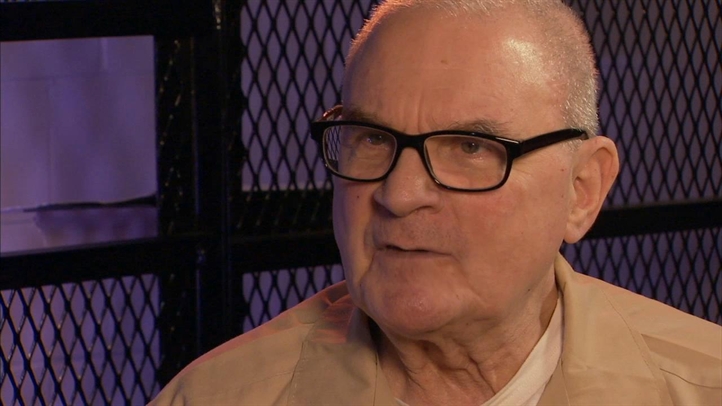"Nobody has polled on this yet" - I'm quoting myself, writing in another venue - "but it's a fair bet that Americans are far less focused on Tuesday’s midterms than on Taylor Swift’s shift from country to pop."
Yup, roughly two-thirds of the citizenry doesn't know or care about these elections - which is too bad, because, if nothing else, they're likely to miss a night of high drama.
Granted, it doesn't really matter which party winds up running the U.S. Senate; if the Republicans take over, they'll likely ratchet up their anti-Obama animus (a la the GOP House) and perpetuate the gridlock while suffering intramural spats (party regulars versus nutcase insurgents). And if they do take over, powered perhaps by a net gain of eight seats, we should remember that there's nothing historic about it. In Ronald Reagan's sixth year, 1986, the opposition Democrats snatched the Senate, powered by a net gain of eight seats. A two-term president's sixth year is typically dire for his incumbent party.
Nor should a Republican takeover be interpreted as any kind of "mandate." Fact is, the GOP has played this year with a big home-field advantage. Virtually all the key '14 Senate races are in red states that President Obama never won - most notably Alaska, Arkansas, Georgia, Kentucky, Louisiana, Montana, South Dakota, West Virginia - plus North Carolina, which Obama lost in 2012.
What makes this election season so mysterious is that, despite occasional talk of a GOP "wave," Democrats have nonetheless remained competitive in so many. And what makes the polls so mysterious is that, even though they mostly foretell a big Republican night, they nevertheless might be missing the hard-to-reach Democratic voters (particularly Millenials, blacks, and Hispanics); and they might be trumped in some states by the vaunted Democratic turnout machine (as happened in 2012).
But this being a midterm year - when older white people typically dominate - the odds still favor a slim Senate Republican majority. The GOP needs to net six seats to reach 51, and it has many routes to victory. Start with the fact that Montana, South Dakota, and West Virginia are expected to go from blue to red. That's already a net pickup of three, halfway to the Republican goal. And if you want to game out where the GOP might notch the other three, watch these states:
New Hampshire, Iowa, and Colorado. All three states voted blue for Obama in 2008 and 2012, but their Senate Democratic candidates are by no means secure in 2014. New Hampshire incumbent Jeanne Shaheen is probably the safest of the three, and Democrats hope that Colorado incumbent Mark Udall can eke out a win with help from the sizable Hispanic community. But Iowa's Bruce Braley, who's trying to succeed retiring liberal Ton Harkin, may well lose to Joni Ernst. Just the fact that a radical right-winger like Ernst might actually win a state like Iowa is a window on the Democrats' woes. Bottom line is, if the Dems lose two of these three Senate races, or all three, they're election night toast.
Local
Breaking news and the stories that matter to your neighborhood.
Georgia. On the other hand, this red state could give the Republicans a bump in the road. In the fight to succeed a retiring GOP senator, Michelle Nunn (daughter of retired centrist Democrat Sam Nunn) might conceivably beat Republican businessman David Perdue, who has been hampered in recent weeks by his frank admission that he has often out-sourced jobs overseas. That, in a state which currently posts the the highest jobless rate in America (7.9 percent, two points above the national average). Democrats, if they hope to hold the Senate, badly need to swipe a red-state seat. Problem is, Nunn needs to clear the 50 percent hurdle, because under Georgia rules, a top finisher under 50 has to take on the runner up in a January runoff election.
North Carolina. The state that hosted this year's most expensive Senate race is worth watching not just because Democratic incumbent Kay Hagan is somewhat imperiled, but because the polls close at 7 p.m. EST. Which means that North Carolina might give us an early indication of the night's overall trend. If Republican challenger Thom Tillis knocks her off, that too would fortell a big GOP night. But Hagan may hang on, thanks to her strategy of painting Tillis as an insider (he's the state House Speaker, and the conservative Republican legislature is unpopular, particularly because of its deep cuts to public education).
Louisiana. Democratic incumbent Mary Landrieu - who has labored hard to ally herself with the state's big carbon-footprint industries, might conceivably finish first in the balloting, but this is another red state that requires the winner to clear 50 percent. If she, or Republican challenger Bill Cassidy falls short of that hurdle, we'll get a runoff election in December.
Alaska. We won't know jack about this redstate until Wednesday. Democratic incumbent Mark Begich may well hang on; the Democratic ground game is said to be strong there, and that turnout could trump the sketchy polls that have shown him in trouble.
But Democrats can probably write off Arkansas and Kentucky. The former state looks like a Republican pickup, with tea-party rock-star Tom Cotton beating incumbent Mark Pryor. The latter state looks like a Republican save, with Mitch McConnell - who barely won re-election in 2008 at the peak of the Obama wave - surviving again, this time against challenger Allison Grimes. That outcome would be no surprise. Why should the Democratic base be enthused about a former Obama delegate who lacked the basic integrity to say that she'd voted for Obama?
One wild card is Kansas, where incumbent Republican Pat Roberts could lose to an independent, Greg Orman, who refuses to say which party he would caucus with. But Orman won't matter if the Democrats have already lost the chamber. Unless it all comes down to a recount of a cliffhanger in Iowa. Or a Louisiana runoff in December. Or a Georgia runoff in January. The prospects for good governance in Washington might be dreary, but you can't say there ain't drama. For what it's worth.
-------
At the top, I mentioned that I'd written something in another venue. It's a long riff on how our political culture dissuades too many people from voting. In Politico Magazine.



